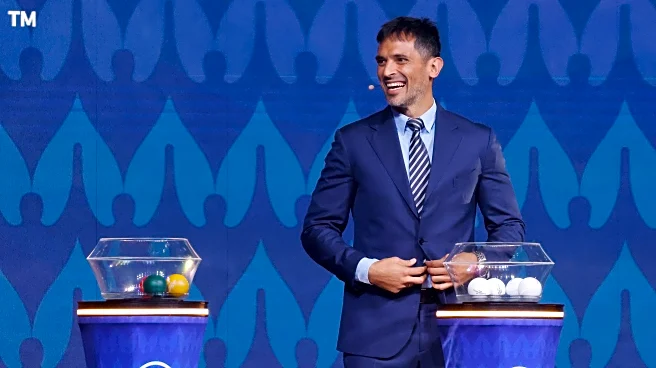What is the story about?
What's Happening?
The United States, in collaboration with Panama, has proposed the establishment of a 5,550-member United Nations Gang Suppression Force to address the escalating violence in Haiti. This initiative comes as a response to the failure of previous efforts, including the deployment of a Kenyan-led international security force and the involvement of a private American security company. The proposed force would be larger and have the authority to make arrests independently, unlike the current security measures. Haiti's gangs have expanded their control, affecting 90% of the capital, Port-au-Prince, and causing significant humanitarian issues, including over 3,000 deaths this year and the displacement of more than 1 million people.
Why It's Important?
Restoring order in Haiti is crucial for the United States due to the transnational nature of the gangs, which are involved in smuggling illegal drugs into the U.S. and weapons back into Haiti. The crisis poses a threat to regional stability and contributes to mass migration, with Haitians attempting dangerous journeys to Florida. The proposed UN force aims to prevent Haiti from becoming a narco-state and address the root causes of violence. Success depends on overcoming previous shortcomings and securing international support for funding and resources.
What's Next?
The success of the proposed Gang Suppression Force hinges on approval from the UN Security Council and the ability to secure contributions from other countries for funding and resources. A legal framework ensuring the rights of detained suspects is necessary, along with humanitarian aid and a commitment to rebuilding Haiti's institutions. The initiative faces challenges, including political infighting and corruption within Haiti's transitional council, and the need for effective coordination among international stakeholders.
Beyond the Headlines
The intervention in Haiti highlights broader issues of international responsibility and the complexities of addressing transnational crime. The situation underscores the need for comprehensive strategies that include humanitarian aid and long-term institutional rebuilding. Ethical considerations regarding the treatment of detained suspects and the role of private security firms in international conflicts are also significant.
















